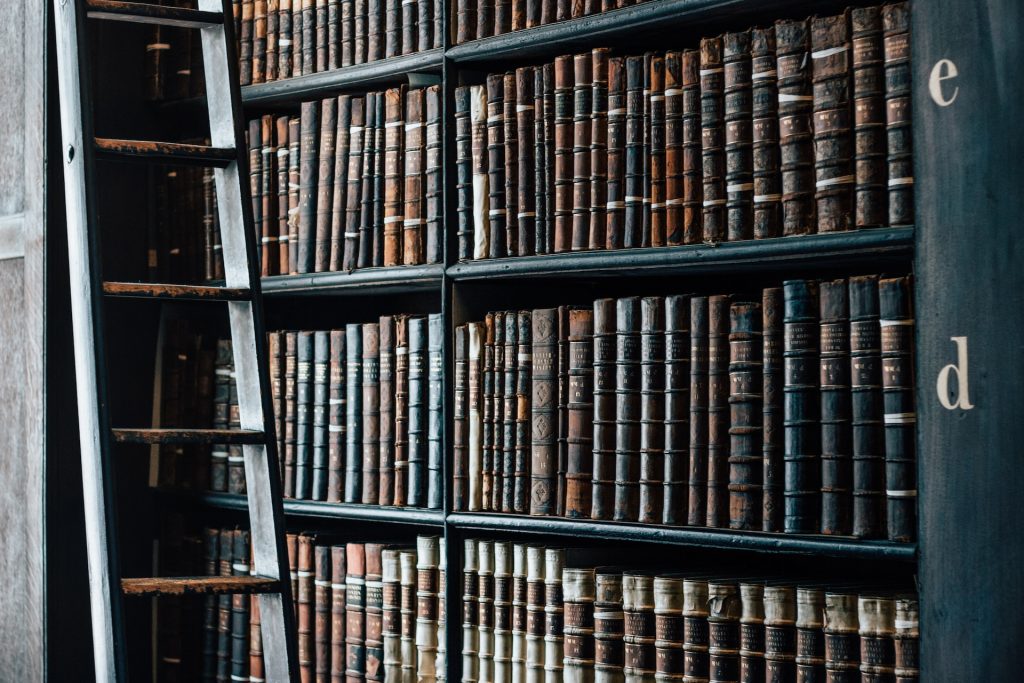The world of literature is a treasure trove of words that have the power to transport us to different eras, evoke deep emotions, and challenge our perceptions. Among the vast constellation of literary stars, certain authors shine brightly, leaving an indelible mark on the world of letters. In this blog post, we will embark on a journey through the literary landscape to explore the lives and works of iconic authors like Jane Austen, Ernest Hemingway, William Shakespeare, Mark Twain, and more. We will unravel why they are famous, how they contributed to literature, and why their works continue to captivate readers and inspire modern media.

Jane Austen: The Master of Wit and Romance
Famous For: Jane Austen is celebrated for her novels, including “Pride and Prejudice,” “Sense and Sensibility,” and “Emma.” Her sharp wit, social commentary, and keen observations of human nature make her a beloved literary figure.
Literary Contribution: Austen’s novels offer a satirical yet affectionate portrayal of 19th-century English society. She pioneered the novel of manners, depicting the intricacies of class, marriage, and societal norms with unparalleled wit and insight.
Timeless Influence: Jane Austen’s works remain a cornerstone of English literature. Her keen characterizations and exploration of social dynamics continue to inspire adaptations into films, TV series, and novels, capturing the hearts of new generations.
Ernest Hemingway: The Master of Minimalism
Famous For: Hemingway is known for his concise and powerful writing style. Works like “The Old Man and the Sea,” “A Farewell to Arms,” and “The Sun Also Rises” are celebrated for their lean prose and deep emotions.
Literary Contribution: Hemingway’s “iceberg theory” of writing involved the use of simple, understated language to convey complex emotions and themes. He excelled at exploring themes of masculinity, war, and human endurance.
Timeless Influence: Hemingway’s minimalist style continues to influence writers worldwide. His emphasis on subtext and the unsaid has a profound impact on modern literature, and his works are often adapted into films and television series.
William Shakespeare: The Bard of All Time
Famous For: William Shakespeare is perhaps the most famous playwright and poet in history. His works include “Hamlet,” “Romeo and Juliet,” “Macbeth,” and “Othello.”
Literary Contribution: Shakespeare’s contributions to the English language, the art of the play, and the exploration of human nature are immeasurable. His works delve into love, power, ambition, jealousy, and the human condition.
Timeless Influence: Shakespeare’s influence on literature, theater, and even film is unparalleled. His timeless themes and characters continue to inspire adaptations, reimaginings, and references in countless modern works.
Mark Twain: The Voice of America’s Heartland
Famous For: Mark Twain, the pen name of Samuel Clemens, is celebrated for classics like “The Adventures of Huckleberry Finn” and “The Adventures of Tom Sawyer.”
Literary Contribution: Twain’s work often explores the American frontier and the complexities of race and morality. He is known for his wit, humor, and keen social commentary.
Timeless Influence: Mark Twain’s themes of freedom, adventure, and moral dilemmas resonate with readers to this day. His narratives of childhood, friendship, and the American experience have been adapted into numerous films and adaptations.

Other Literary Luminaries: A Glimpse Beyond
While Austen, Hemingway, Shakespeare, and Twain shine brilliantly in the literary galaxy, there are many more stars that have left their mark on the pages of history:
- Charles Dickens: Famous for his vivid characters and social criticism, Dickens authored timeless classics like “A Tale of Two Cities” and “Oliver Twist.”
- George Orwell: Known for works like “Animal Farm” and “1984,” Orwell’s dystopian visions of the future continue to resonate in contemporary political discourse.
- Leo Tolstoy: The Russian mastermind behind “War and Peace” and “Anna Karenina” explored themes of love, destiny, and human nature on an epic scale.
- Emily Brontë: With “Wuthering Heights,” Brontë crafted a haunting tale of love, revenge, and the Yorkshire moors.
- F. Scott Fitzgerald: The author of “The Great Gatsby” captured the spirit of the Roaring Twenties and the American Dream.
What Sets Them Apart: Styles That Spark Imagination
Each of these iconic authors possesses a unique style and voice that distinguishes them:
- Jane Austen’s biting social satire and keen insights into human foibles.
- Ernest Hemingway’s terse, economical prose and emotional depth.
- William Shakespeare’s mastery of poetic language, wordplay, and exploration of universal themes.
- Mark Twain’s humor, colloquial language, and the ability to capture the essence of the American experience.
Modern Media: A Continuation of Literary Legacy
The enduring appeal of these authors is not limited to the written word; their works have been continually adapted into various forms of modern media. From classic film adaptations of Jane Austen’s novels to Hemingway’s timeless exploration of love and courage in “The Old Man and the Sea,” and from contemporary reimaginings of Shakespearean plays to Mark Twain’s enduring tales of Huck Finn and Tom Sawyer, their stories continue to find new life in the visual and digital age.

The luminaries of literature featured in this blog post have gifted us with words that transcend time and space. Their stories continue to touch our hearts, challenge our minds, and inspire new generations of readers and creators. As we immerse ourselves in the worlds they have crafted, we find ourselves drawn to the universal themes, unforgettable characters, and enduring prose that unite us across the pages of history. These authors are more than just names on a bookshelf; they are beacons of wisdom, creativity, and the power of storytelling, reminding us that the human experience is a tale worth sharing.





